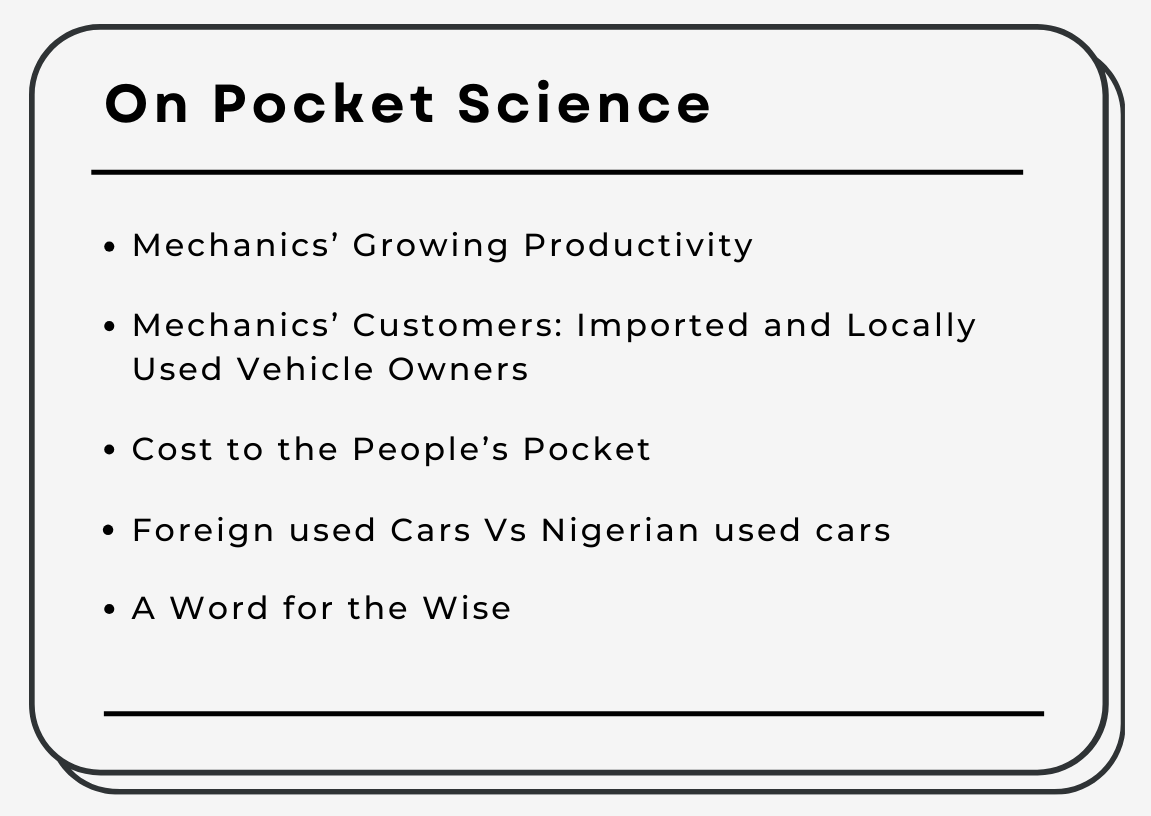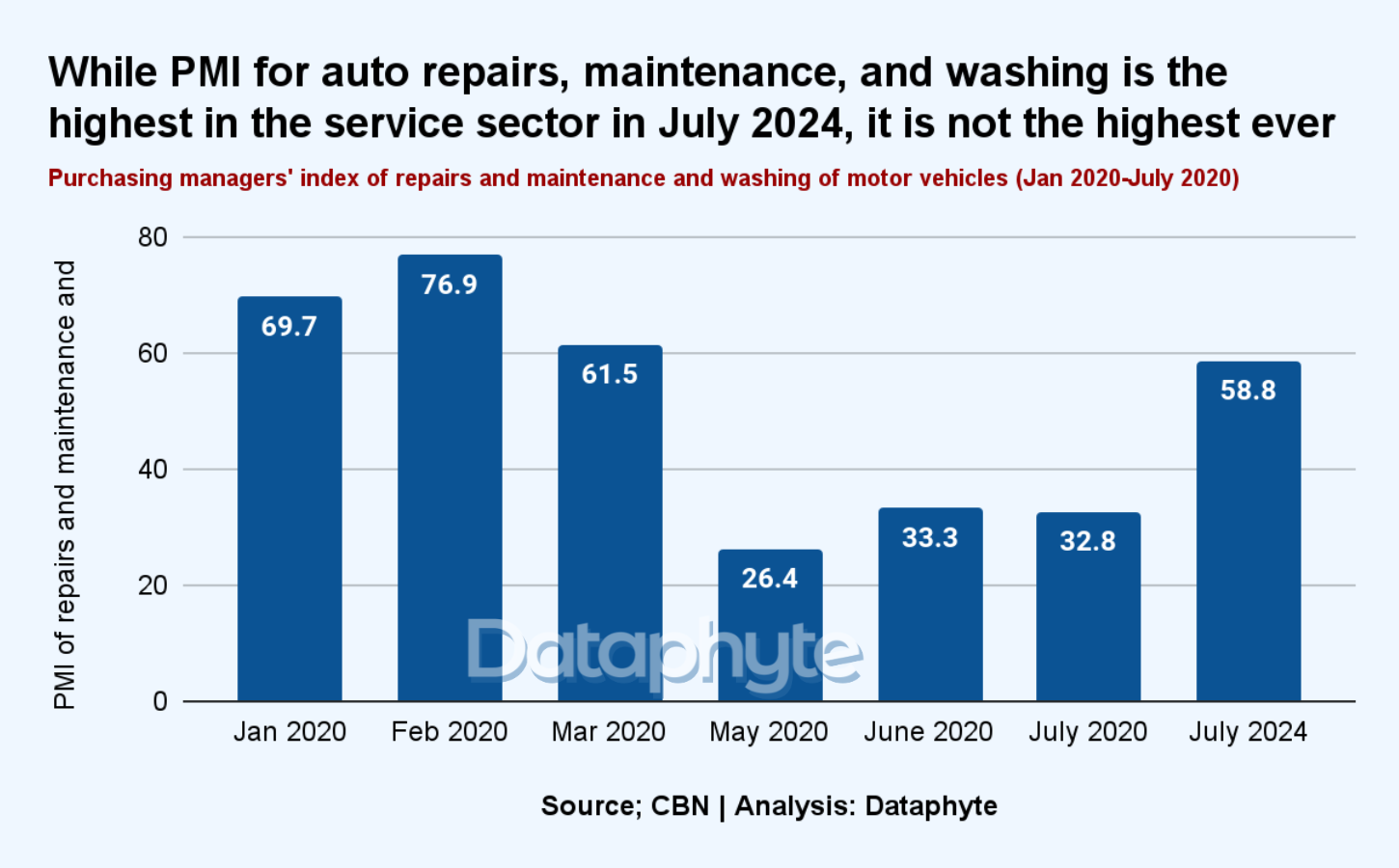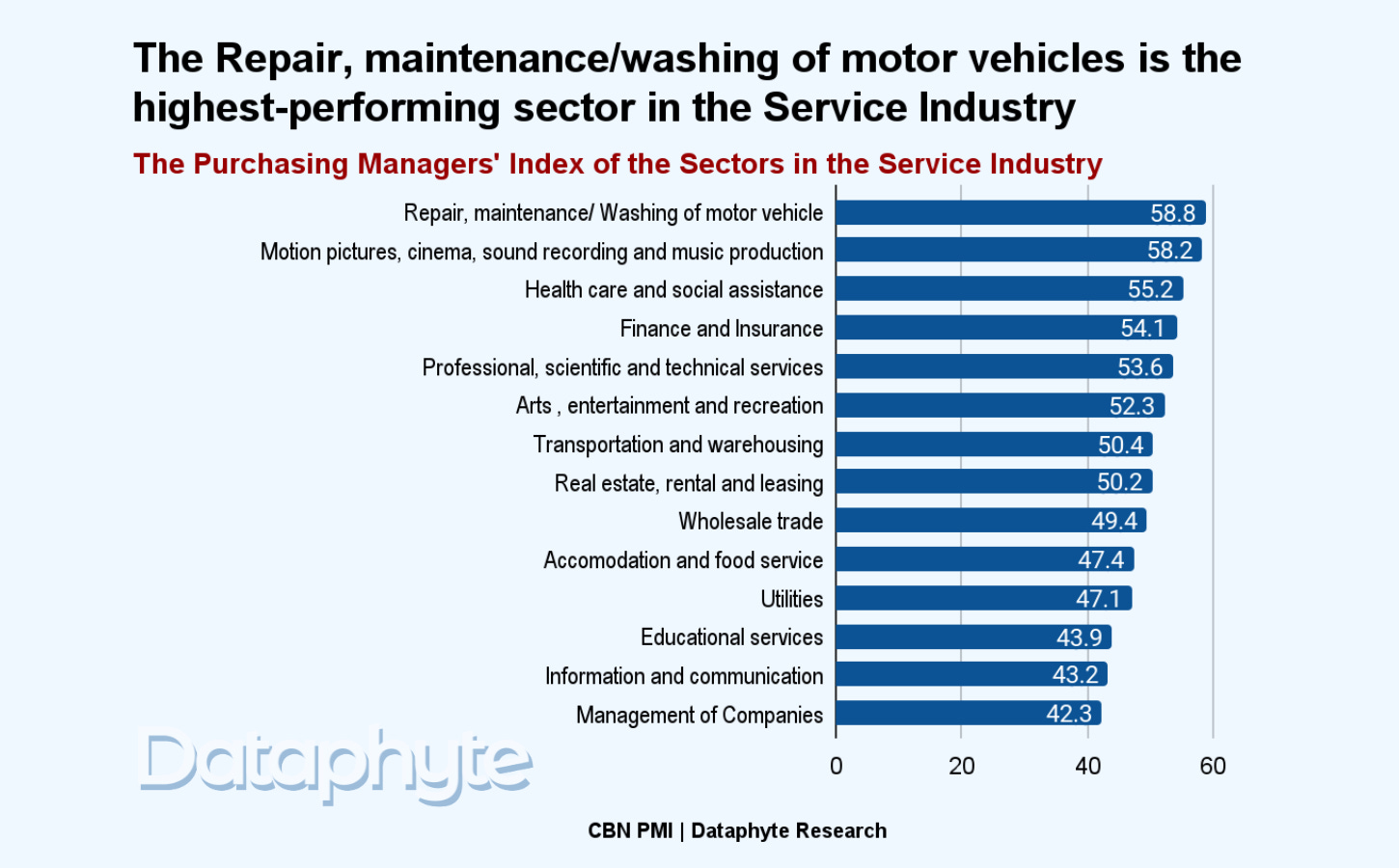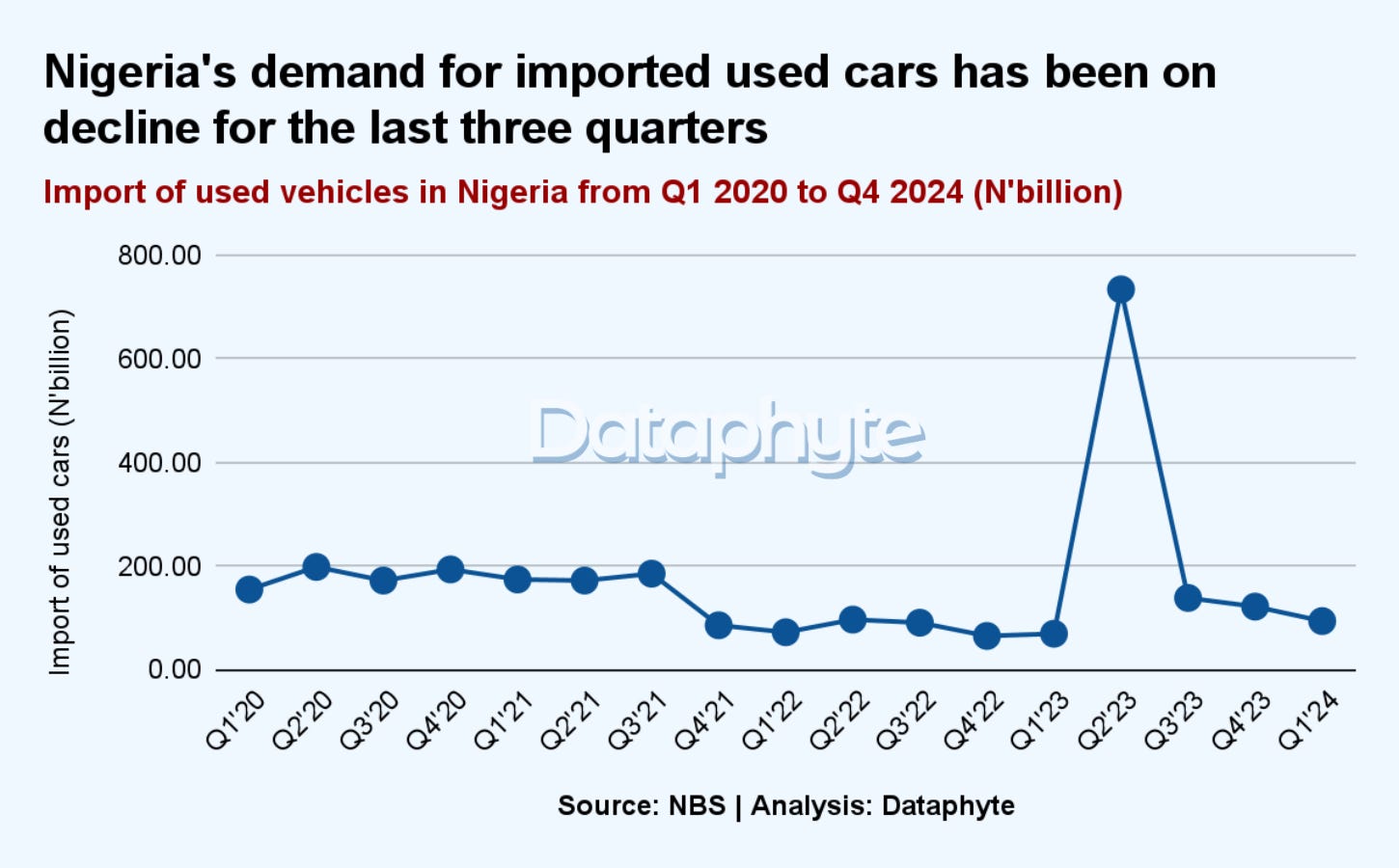Vehicle repairs, maintenance and car wash services were the best-performing sub-sector in Nigeria's service economy this July, according to the July 2024 Purchasing Managers' Index (PMI) statistics from the Central Bank of Nigeria (CBN).
This implies a growing demand for car repairs, maintenance, and washing and increased job opportunities within this industry.
According to the CBN, the PMI gauges the direction of economic activities in Nigeria and is computed based on responses regarding the direction of change in different aspects of respondents’ business activities.
An index above 50.0 points indicates an expansion in business activities while an index below 50.0 points indicates a contraction in business activities.
An index of 50.0 indicates a no-change situation.
People attribute the rise in patronage of mechanics services and spare parts to the high use of fairly used cars which require more frequent repairs, parts replacement, and maintenance.
There is a downside to this: increased spending on frequent repairs hurts people’s pockets, cutting out large chunks of people’s disposable incomes.
The PMI of Mechanic services declined in the last 3 consecutive periods of May, June, and July 2020, when the CBN stopped the release of its PMI. The sector shows increased performance at the relaunch of the PMI this July.
Historically, Nigeria’s service industry PMI has been dominated by sectors such as arts, entertainment and educational services, electricity, gas, steam and air conditioning supply, water supply, sewage and waste management and professional, scientific, and technical services.
The latest PMI data, however, indicates a change, with mechanic and car wash services now taking centre stage.
Mechanics’ Customers: Imported and Locally Used Vehicle Owners
The majority of Nigerians can only afford used imported vehicles, popularly known as Tokunbo, because of the high cost of the new imported ones.
However, the soaring exchange rate since July 2023, makes buying imported used vehicles more unaffordable, recording declines in demand for 3 consecutive quarters (Q3 2023 - Q1 2024).
People resort to buying locally used vehicles instead.
The market for locally used cars in Nigeria is expected to be worth $1.14 billion in 2024 and rise at a compound annual growth rate (CAGR) of 8.90% to reach $1.74 billion by 2029 according to Modor Intelligence.
The expansion in patronage of mechanic services, mostly with used vehicles, is not without consequences.
On the one hand, it represents a robust sector of the service economy that is generating employment and stimulating economic output.
On the other hand, it draws attention to the financial difficulties Nigerians are facing as they spend a growing percentage of their income on frequent vehicle maintenance as opposed to replacing them with more recent upgrades.
Cost to the People’s Pocket
While the expansion of mechanic and vehicle wash services is thriving, it might be benefitting from people’s buying used cars, especially the locally used ones.
According to the PWC Report, "Nigerian used cars that are resold may require a significant level of bodywork and other repairs depending on the former users’ maintenance habits, (they) rarely have any service history and generally have lower resale value."
So, the more people buy Nigerian used cars, the more expensive and frequent repairs will be for their owners.
People then have to spend a significant part of their disposable income on frequent car maintenance as opposed to replacing them with more recent upgrades.
Just as people’s purchase and reuse of locally used cars is increasing, the demand for spare parts is rising too, data from the International Trade Administration shows.
These financial strains coupled with a 33.40% inflation rate increase the difficulty in buying and maintaining cars in Nigeria.
The downside of the boom in demand for mechanic services is that individuals and families now spend more of their incomes on car repairs.
This may impact negatively on consumer spending, savings, and household’s economic stability, in the long run.
Nigerians struggle with the increased costs of maintaining old vehicles just as inflation continues to bite.
Foreign used Cars Vs Nigerian used cars
According to reports, foreign used cars typically come in better shape and come in a larger assortment including uncommon models in the Nigerian market like sports cars and electric vehicles (EVs).
Due to the superior roads and maintenance requirements in other countries, these cars are typically well-maintained.
Furthermore, the availability of vehicle history reports for internationally used cars promotes transparency and aids purchasers in avoiding unforeseen problems.
In contrast, used automobiles from Nigeria are frequently more likely to have underlying issues because of inadequate maintenance, difficult driving conditions, and a lack of trustworthy vehicle history.
Foreign-used automobiles provide peace of mind in terms of quality and longevity, even though they are costlier and necessitate extra procedures like registration.
While Nigerian used cars are less expensive, they have shorter lifespans and are more likely to have concealed defects, which makes them less dependable over time.
A Word for the Wise
Even though Nigerian used cars seem like a cheaper and more financially prudent option, it's important to be sure that the purchase won't result in high maintenance expenses later on.
It's critical to understand the ramifications of buying a Nigerian second-hand car. Before deciding to buy, the measures could entail a more in-depth assessment of the vehicle's overall condition, its history, and the seller's standing.
Consumers might also want to look into the advantages of flexible financial planning, which might involve putting money aside for unforeseen auto repairs or taking into account insurance plans that provide comprehensive coverage.
Concentrating on extending the life of the car by making sure it runs effectively and safely is also another tip, this may entail routine maintenance, prompt oil changes, and taking care of small problems before they get worse.
Thanks for reading this edition of Pocket Science. It was written by Khadijat Kareem and edited by Oluseyi Olufemi.






